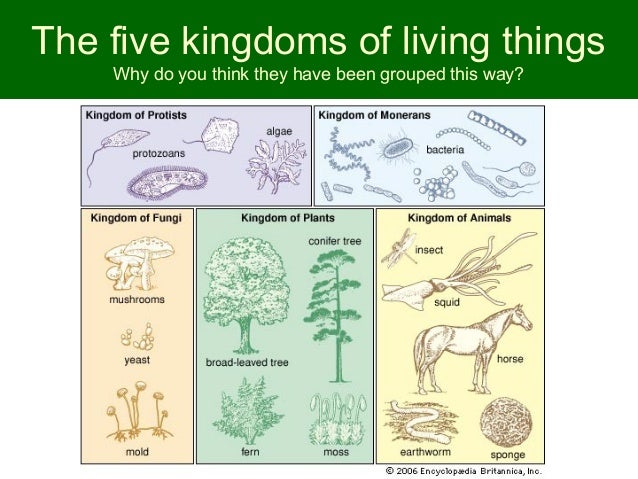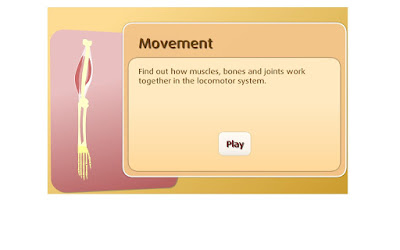¡Bienvenid@s a Natural Science de 5º!
En este espacio iré aportando una serie de recursos relacionados con los temas que vamos estudiando, para que se repase y trabaje en casa de una manera más entretenida.
UNIT 1: "LIVING THINGS" (Information about "Life in 3D")
In this unit we are going to review and extend our knowledge of the differences between living and non-living things based on the three vital functions: nutrition, interaction and reproduction.
We will begin to study cell structure. Then, we will also investigate and lear about classifying living things into the five kingdoms.


Part 2
We will begin to study cell structure. Then, we will also investigate and lear about classifying living things into the five kingdoms.
Living things and non-living things
Cell structure and levels of organization
Vital functions
Kingdoms


To review unit 1
Summary unit 1
UNIT 2: "INTERACTION AND THE BODY"
In this unit the students will study the vital function
of interaction. They will learn how we receive
information from the environment, how we process
this information and how the body responds to that
information.
In order to this, they will study the nervous system as well as reviewing the sense organs and how they function. They will also begin to study the different parts of the brain and their functions. Finally, the students will review the locomotor system establishing connections between it and the nervous system.
In order to this, they will study the nervous system as well as reviewing the sense organs and how they function. They will also begin to study the different parts of the brain and their functions. Finally, the students will review the locomotor system establishing connections between it and the nervous system.
Receiving information
Part 1
Part 2
Processing information
Giving a response
To review unit 2
Glossary unit 2
Summary unit 2
UNIT 3: "HEALTH AND ILLNESS"
In this unit your child will review and extend their knowledge of the human body, focusing on how
to protect the body from illness and accidents.
They will study diseases such as infectious, contagious and non-contagious diseases. They
will learn the causes and the treatment needed. They will also learn about ways to prevent these
diseases.
Finally, they will study medical advances and will appreciate how technology has helped improve
prevention, diagnosis and treatment of illnesses.

Deseases and illnesses
Tips to stay healthy

Advances in medicine
First Aid
To review unit 3
Glossary unit 3
Summary unit 3
UNIT 4: "The plant kingdom"
In this unit the students will review and revise the
vital functions of living things, focusing on plants.
They will pay special attention to plant interaction
and the ways plants adapt to their environment.
They will also revise the structure of plants and the
function of each part. They will
analyse and compare the processes of photosynthesis
and respiration in plants. They will discuss the
importance of photosynthesis for life on planet Earth.
Classification of plants
Parts of plants
Plant nutrition and respiration
In these units the students will learn about relationships between living things in a ecosystem and they will observe the enormity of biodiversity. They will understand that the Earth is an ecosystem which contain all other ecosystems, it´s like a jigsaw puzzle where every little piece in an important piece.
Ecosystems
Food chain and food web
Biosphere
Loss of Biosphere
Summary unit 5 Glossary unit 5
UNIT 7: "The best superhero"
In this unit the students will study matter and forces.
They will learn the properties of different
materials They will review the three states of matter and
increase their knowledge by studying the basic rules
which determine changes of state, investigating
physical (reversible and irreversible) and chemical
changes.
The students will study the concepts of element and
mixtures (homogeneous and heterogeneous).
They will learn how to measure mass, volume and
density .
They will study the forces of magnetism,
gravity, friction and buoyancy
They will also investigate modern advances in the
creation of new materials which benefit society and
are environmentally friendly.
What you are going to prepare:
1. MATTER
a. Matter and states of matter. à GROUP 1
b. Changes of matter: physical and
chemical. à GROUP
2
c. Mass, volumen and density. à GROUP 3
d. Thermal conductivity, Hardness and
solubilityà GROUP
4
e. Pure subtances and mixturesà GROUP 5
2. FORCES
a. Non-contact forces: Magnetism and
gravityà GROUP
6
b. Contact forces: Friction and
bouyancyà GROUP
7
Your videos
New materials
UNIT 8: "Energy"
In this unit the students will study energy. They will
identify the different forms of energy. The students will identify and explain the differences
between renewable and non-renewable energy
sources.
Pupils have to obtein a certificate to demonstrate they are experts in renewable energies.They have to access this link and follow the instructions










































Este comentario ha sido eliminado por un administrador del blog.
ResponderEliminar